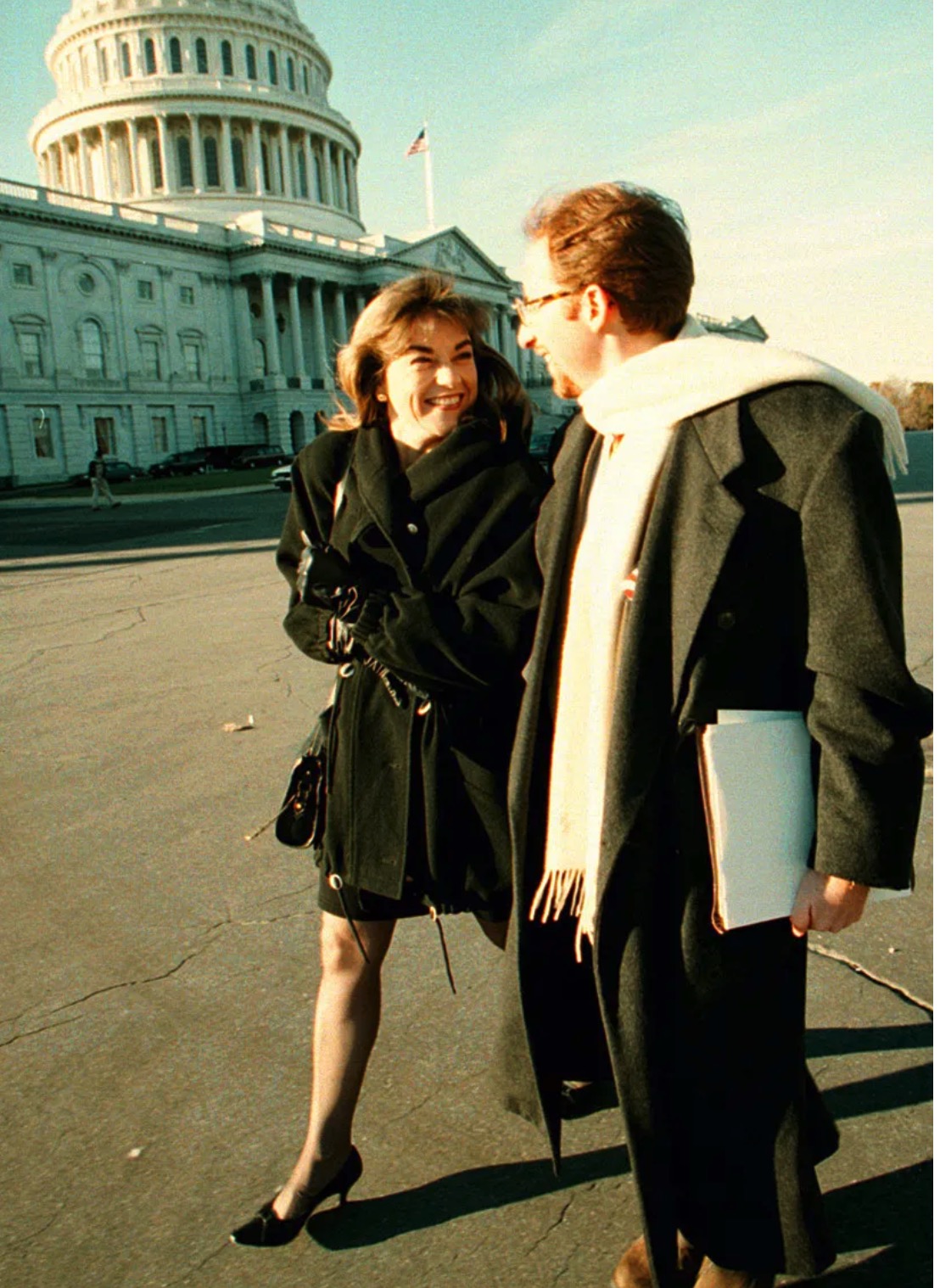Comments
JOHN'S REPORT - I'm a Los Angeles-based political consultant who's made a living helping Democrats win in Republican-leaning districts. I've even helped a few centrist Republicans win non-partisan races for Mayor and District Attorney in blue cities across California. Although I don’t claim to have THE “special sauce” for winning tough races like these, my career has been dedicated to the one thing missing from our party’s election strategy in 2024: finding common ground and speaking to those on "the other side" in ways that disarm rather than incite.
My first “big” success came in 1996 when I took on what seemed like an impossible task: unseating long-time GOP Congressman Robert "B-1 Bob" Dornan in deep red Orange County, CA. Dornan was an arch-conservative figure known for his outrageous rhetoric who had run unsuccessfully for President but built a loyal national following. In many ways, Dornan was Trump before Trump—flamboyant, unfiltered, anti-gay, anti-immigrant. In short, a guy who would say anything to get elected, and had done so, quite successfully, for nearly two decades.
And yet, my client, Democratic Latina Loretta Sanchez, defeated Bob Dornan in one of the biggest upsets in congressional history. How did we do it? Well, it wasn’t by countering his vitriol from the right with even more outrage and vitriol from the left. Instead, we did something unexpected—we ran on bread-and-butter economic issues and connected with voters on a deeply local level.
Our approach was simple but effective. Instead of replaying Dornan's famously inflammatory and bigoted pronouncements, we zeroed in on the issues that mattered most to area voters. We ran tv ads, sent mailers, and held events focused on quality of life: reducing the cost of living, balancing the budget, supporting small businesses, and increasing pay for our soldiers and veterans by cutting military waste. In short, Loretta didn't win by lecturing voters or talking down to them. She won by knocking on nearly 20,000 doors, talking openly and honestly with voters of all political persuasions, and listening to—and learning from—their concerns.

Our guiding principle? Meet people where they are—physically, spiritually, and intellectually. Avoid slogans, avoid Beltway language, and talk about issues that impact their day-to-day lives. Run like you're running for city council, or a neighborhood watch captain, not for a seat in Congress. Loretta wasn't there to teach and preach; she was there to listen and learn. She'd start conversations with voters on a human level, sharing stories about family or work and letting them tell her what was on their mind—what worries kept them up at night. She avoided ideological landmines, and, instead of focusing on national wedge issues, she focused on issues that were almost exclusively local: supporting mom and pop businesses, clean and green neighborhoods, affordable homes, safe streets, and excellent schools. Loretta wouldn’t have run away from Joe Rogan’s podcast; she would have been a regular guest.
I'm not claiming this is a one-size-fits-all formula, but I've seen this approach work time and again. I credit a lot of my success to the fact that I never worked or lived inside the Beltway. I'm from Rock Island, Illinois—a small town on the Mississippi River—and ground zero of middle America. Over the years, I've traveled across this country, and I've learned that most Americans, like the people I grew up with, are fundamentally good people who want to help each other, regardless of political party. They won't ask if you’re “Red” or “Blue” before deciding to lend a hand. There's a common decency in this country, one that social media and partisan mainstream media often overlook.
And here lies the biggest obstacle to unity: the cauldron of hatred and disinformation we now call social media. Gone are the days of Walter Cronkite when news was delivered with journalistic integrity. Today, artificial intelligence algorithms drive us into echo chambers, feeding us a steady diet of fake news and further locking us into silos that divide us from each other. We don't have real conversations anymore, and kids are growing up on TikTok rather than Sesame Street. Is it any wonder that "the middle" seems to have disappeared?
The media wants us to believe we're hopelessly divided, with Democrats on the "radical left," Republicans on the "radical right," leaving Americans everywhere angry and distrustful. We've been conditioned to expect the worst from each other. It's no way to live—and it's certainly no way to run a democracy.
So, now, as we move forward in the aftermath of a uniquely divisive election, we have a real choice. Do we build even more ideological walls to separate us from our so-called political opponents? Or do we treat our fellow Americans as neighbors and start having real conversations with each other again?
Personally, and professionally, I’m tired of candidates, consultants, and pundits from across the political spectrum framing every election like it’s a battle between good and evil. In fact, I think it's time to replace the language of "fighting" with the language of "working." We should work to build consensus on common ground, rather than taking pot shots at each other from our trenches, at opposite ends of a battlefield.
The solution is straightforward: get out of the Beltway, put down the divisive slogans, and focus on the words and the issues that truly matter to people's lives. In the wake of the 2024 Presidential Election, there will be endless hand-wringing and analysis of what went wrong for Democrats. But maybe we're making it too complicated. The answer could be as simple as going back to what worked in 1996—engage people on their level, listen to their concerns, and stay focused on the things that unite rather than divide. Because in the end, it's still the economy, stupid—and always will be.
(John Shallman is an award-winning political media consultant and crisis management expert and President of Shallman Communications in Los Angeles. Mr. Shallman is the author of the national best-selling book, Return from Siberia. www.shallmancommunications.com.)






